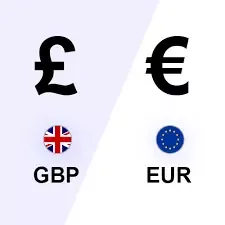Euro to GBP Exchange Rates: Understanding the Fluctuations
The Euro to GBP exchange rate is an important economic indicator that affects businesses, travelers, and investors alike. Understanding the factors that influence this rate can help you make informed decisions about international trade and travel.In this guide, we'll explore the key factors that impact the Euro to GBP exchange rate and what they mean for you.
Introduction
Euro to GBP Exchange Rates.
The Euro to GBP exchange rate is the value of one Euro in British pounds. This rate is constantly fluctuating due to a variety of economic and political factors.Understanding these factors can help you predict future changes in the exchange rate and make informed decisions about international trade and travel.In this guide, we'll explore the basics of Euro to GBP exchange rates and what you need to know to stay ahead of the game.
Factors that Influence Exchange Rate Fluctuations.
There are many factors that can influence the Euro to GBP exchange rate, including economic indicators, political events, and market sentiment.- Economic indicators such as inflation, interest rates, and GDP growth can all impact the exchange rate.
- Political events such as elections, trade agreements, and geopolitical tensions can also have a significant effect. Additionally,
- market sentiment, or the overall mood of investors and traders, can cause fluctuations in the exchange rate. By keeping an eye on these factors, you can better understand and predict changes in the Euro to GBP exchange rate.
Political and Economic Factors.
Political and economic factors are two of the most significant influences on the Euro to GBP exchange rate. Political events such as Brexit negotiations, changes in government leadership, and trade agreements can all impact the exchange rate. Economic indicators such as inflation, interest rates, and GDP growth can also have a significant effect. For example, if the UK experiences high inflation, the value of the pound may decrease relative to the euro.It's important to stay informed about these factors to make informed decisions about international trade and travel.
Interest Rates and Inflation.
Interest rates and inflation are two key economic indicators that can have a significant impact on the Euro to GBP exchange rate. When interest rates rise, it can make a currency more attractive to investors, leading to an increase in demand and a rise in value.On the other hand, high inflation can decrease the value of a currency as it reduces the purchasing power of consumers and businesses. It's important to keep an eye on these indicators and how they may affect the exchange rate.
Impact on International Trade and Travel.
The Euro to GBP exchange rate can have a significant impact on international trade and travel. A strong Euro can make it more expensive for British businesses to import goods from the Eurozone, while a strong GBP can make it more expensive for Eurozone businesses to import goods from the UK.This can lead to changes in trade patterns and affect the competitiveness of businesses in both regions. Additionally, fluctuations in the exchange rate can impact the cost of travel between the UK and Eurozone countries, making it more or less expensive for tourists and business travelers.


.png)
0 Comments